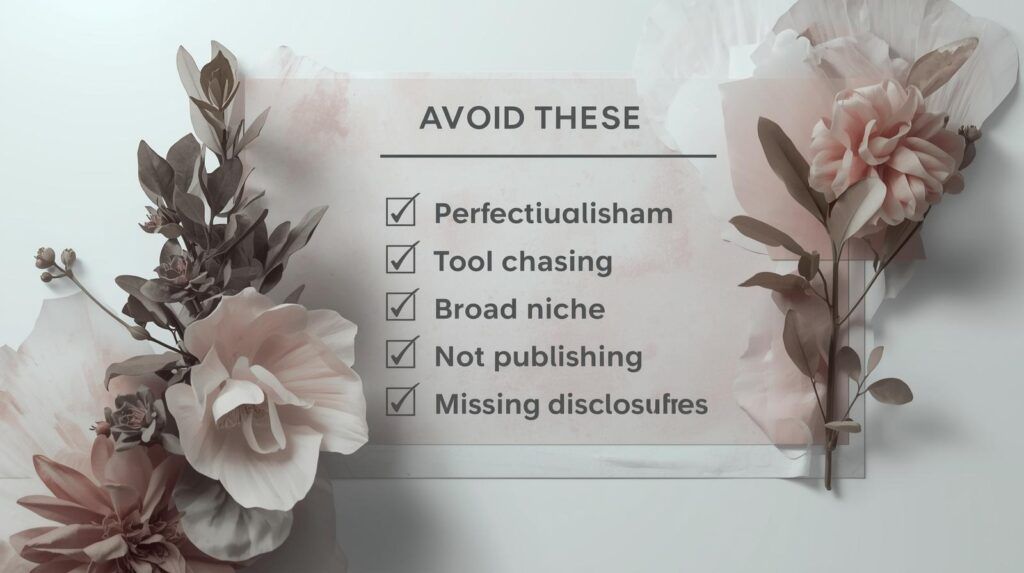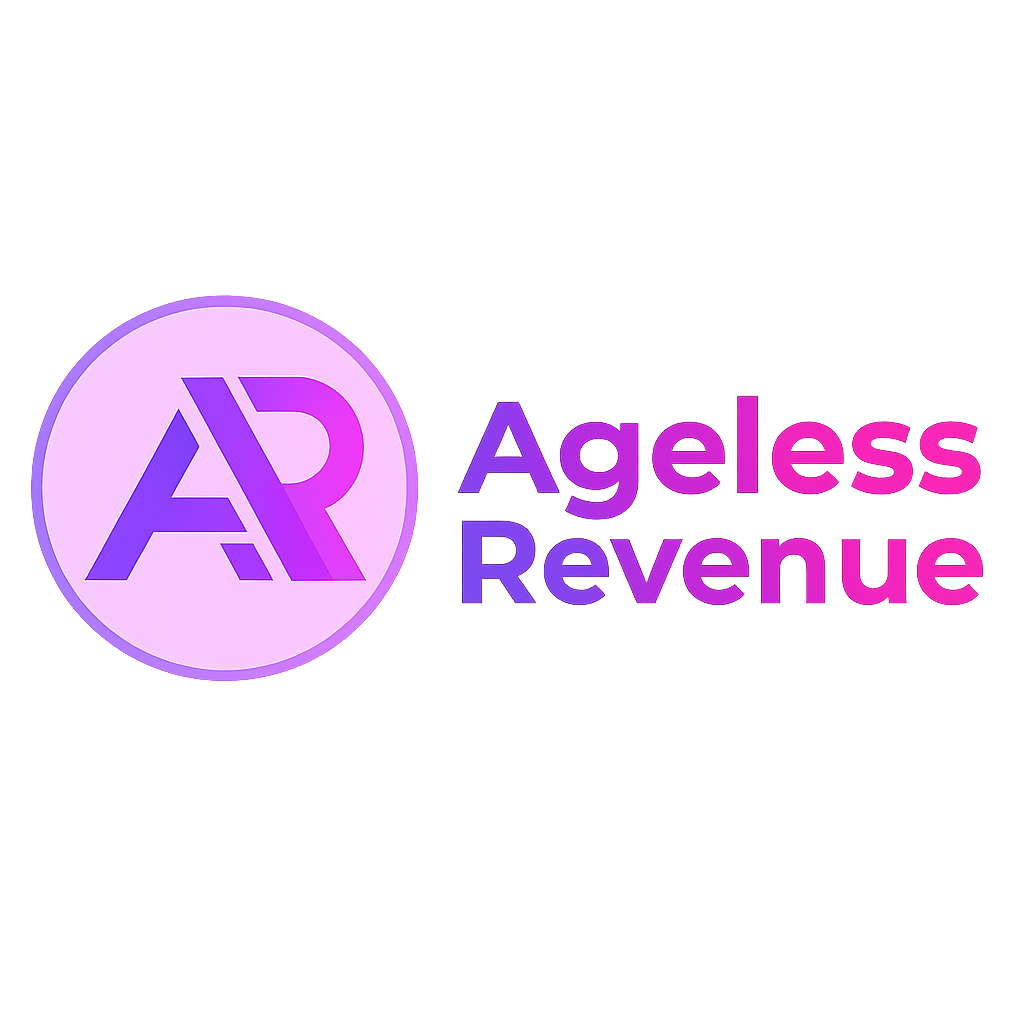Looking for online business ideas for retirees that are realistic, low pressure, and genuinely enjoyable? This guide cuts the fluff and shows you 10 beginner-friendly options—what they are, why they fit, and the first tiny steps to take this week. You’ll also get a quick method to choose the best idea for your time, budget, and energy.
TL;DR – Online Business Ideas for Retirees
- You can start online business ideas for retirees with small, low-pressure projects like a niche blog, simple newsletter, or digital downloads.
- Focus on ideas that match your energy, skills, and interests: one reader, one problem, and one clear way you help.
- Most of these ideas can be started in 2–6 focused hours per week, using simple tools you likely already know or can learn quickly.
- Your first goal is not to build everything at once, but to pick one idea, launch a simple version, and commit to improving it for the next 30–90 days.
New here? Start with Affiliate Marketing 101, launch with the Step-by-Step Website Guide, and keep my Starter Kit handy. Have an idea already? Run it through the Validation Guide.
How to Choose (Fast) — The 5-Point Fit
- Time/week: Can you make progress in 2–6 hours weekly?
- Budget: Can you start with low or no cost?
- Enjoyment: Would you happily do this for months?
- Skills: Can you learn the basics in a few lessons?
- Audience need: Do people actually want this?
If you already know you want something simple and calm, you can pair this list of ideas with a step-by-step plan:
- Step-by-Step Guide To Starting Affiliate Marketing With No Experience — a gentle path if you want to start with a niche blog or simple site.
- From “What’s a Niche?” to First Sale: A 90-Day Step-by-Step Guide — a week-by-week roadmap once you’ve picked your favorite idea.

Top 10 Online Business Ideas for Retirees (Beginner-Friendly)
Each idea below includes the “why it fits,” first tiny actions, and how to earn. Start with one and keep it simple.
1) Niche Blog (Helpful Tutorials + Reviews)
Why it fits: Flexible, low cost, builds an asset you control. Perfect if you like explaining and writing.
This week: Pick one reader and one problem (e.g., retirees starting orchid care). Publish a 800–1200-word tutorial. Add 2 internal links and 1 external citation.
Monetization: affiliate links, display ads later, simple digital downloads.
Want help turning a niche blog into a calm starter business?
- Affiliate Marketing 101 for Retirees: Simple Beginner’s Guide (2025) — big-picture basics in plain language.
- Affiliate Marketing Starter Kit for Beginners (2025) — a printable workflow to keep your next steps clear.
- How To Conduct Keyword Research For Maximum SEO Impact: The Definitive 2025 Guide — find topics your readers actually search for.
- How to Create Engaging Content That Converts for Affiliate Sales — structure posts so they earn without feeling pushy.
2) Email Newsletter (Curated Help)
Why it fits: Low pressure, direct connection with readers, steady routine.
This week: Create a free lead magnet (one-page checklist). Send an intro email with your first tip.
Monetization: affiliate recommendations, sponsorships, your own products later.
3) YouTube “How-To” (Face or Hands-Only)
Why it fits: Visual learners love quick demos; you can stay hands-only if you prefer.
This week: Script a 90-second tutorial. Record on phone near a window. Upload with a clear title and one CTA.
Monetization: affiliate links in description, later ads/sponsors.
4) Printables & Templates (Etsy or Your Site)
Why it fits: Creative but simple: planners, checklists, labels, trackers.
This week: Make one PDF (one page). Upload to Etsy or a product page on your site.
Monetization: product sales; bundle later.
5) Product Reviews Site (Helpful, Not Hype)
Why it fits: Great for detail-oriented retirees. Focus on beginner-friendly gear or software.
This week: Write a comparison of 2–3 products you already understand. Include pros/cons and a quick-start tip.
Monetization: affiliate links; later add buyer guides.
6) Local Directory + Guides (Support Small Businesses)
Why it fits: Community-minded; low tech. You can start with a simple page and build.
This week: Publish a “Support Small Businesses in [Your Town]” page with 5 categories and 10 listings. Add a simple contact form for suggestions.
Monetization: sponsored listings, local affiliate offers, your own guides.

7) Light Consulting/Coaching (Short Sessions)
Why it fits: Share your lifetime skills in 30–60-minute sessions.
This week: Add a one-page “Work with Me” outlining 2–3 session types. Offer 3 pilot spots.
Monetization: hourly or package pricing; upsell templates or guides.
8) Simple Digital Products (Checklists, Mini-Guides)
Why it fits: One-time build, sell many times. Great add-on to a blog or newsletter.
This week: Outline a 5-page mini-guide; design in a simple doc; export to PDF; add a checkout button.
Monetization: sell on your site; bundle with email signup.
9) Print-on-Demand (Mugs, Shirts, Cards)
Why it fits: No inventory; playful creative outlet. Pair with a niche (gardening, pets, travel).
This week: Create 3 designs with free tools; list them on one marketplace store.
Monetization: product margins + seasonal drops.
10) Online Course or Workshop (Tiny First)
Why it fits: Package what you know. Start with one live Zoom workshop (45–60 min).
This week: Draft 5 bullet outcomes; set a date; invite your newsletter list or local group.
Monetization: ticket sales; later record and sell the replay.
7-Day Starter Plan (No Overwhelm)
- Day 1: Choose one idea; write your one-sentence goal and target reader.
- Day 2: Collect 10 long-tail topics/questions your reader searches.
- Day 3: Draft your first piece (blog, video, or printable).
- Day 4: Edit and publish. Add 2 internal links and one helpful external link.
- Day 5: Share in one community; ask one focused question; apply the best suggestion.
- Day 6: Create a simple email signup or product page (if relevant).
- Day 7: Review wins and plan next 2 topics.

If you enjoy this 7-day starter plan and want a longer roadmap, here are two next steps that fit well for retirees:
- Step-by-Step Guide To Starting Affiliate Marketing With No Experience — ideal if you chose a niche blog, review site, or content-based idea.
- From “What’s a Niche?” to First Sale: A 90-Day Step-by-Step Guide — stretch this 7-day momentum into your first commission.
Common Mistakes (and Fixes)
- Perfectionism: aim for “good enough” in 90–120 minutes; improve later.
- Tool chasing: pick one tool per task for 30 days.
- Too broad a niche: write to one reader with one problem.
- Not publishing: set two weekly time blocks and protect them.
- Missing disclosures: add an affiliate disclosure on relevant pages.

If you want a deeper checklist focused just on mistakes and fixes, especially for affiliate-focused ideas, read this next:
Affiliate Marketing Mistakes: 10 Costly Errors Beginners Must Avoid
Use it alongside this list of online business ideas so you can start with realistic expectations and fewer surprises.
FAQs
How much time per week is enough?
Two to six focused hours is plenty to get started and see momentum within weeks.
Do I need fancy tools?
No. You can start with free or built-in tools, then upgrade if the idea sticks.
What’s the easiest to start?
A niche blog or simple newsletter—both pair well with affiliate links and small digital products.
Bringing Your Online Business Idea to Life
Retirement doesn’t have to mean slowing down. With one of these online business ideas, you can stay engaged, use your experience, and build an income stream that fits your energy and lifestyle.
- Pick one idea that genuinely feels interesting.
- Commit to 2–6 focused hours per week for the next 30–90 days.
- Keep things simple: one reader, one problem, one clear way you help.
You don’t need to build everything at once. You just need to start small and keep moving.
If you’d like a printable checklist to keep by your desk while you grow, download my free Affiliate Marketing Starter Kit for Retirees. It turns several of these ideas into a calm, step-by-step workflow you can follow.
Ready to Learn with Support?
Join me at Wealthy Affiliate—step-by-step lessons, community help, and AI-assisted tools to move faster without stress.
Disclosure: This post may contain affiliate links. If you click and purchase, I may earn a commission at no extra cost to you.
Helpful resources: FTC Disclosures 101, FTC Endorsement Guides, Google Helpful Content.



The freelance consulting suggestion is very practical for the age group targeted, and I am saying this because I belong to the target segment. Many retirees don’t realize how marketable their decades of industry experience remain. The virtual assistant recommendation is smart too, especially with the note about specializing in medical or legal fields where accuracy matters more than speed.
The dropshipping section wisely addresses common concerns about physical limitations, though the emphasis on finding reliable suppliers can’t be overstated based on my experience. The online tutoring ideas are timely given the growing demand for adult education in tech skills.
Most valuable is the realistic time investment noted for each option – too many guides exaggerate the “easy money” angle rather than acknowledging that worthwhile income still requires consistent effort, even in retirement.
Since things to evolve take time, I decided to pursue three lines of business. One of them is offline, but the other two are online; Trading and Blogging. For the online ones, I started getting into them in the early 2000s but I consider that I started my learning journey a couple of years ago. I am still learning by doing.
Each option, as you mentioned, takes time. In your opinion should one concentrate on one option make it succeed and then move to another option. Or start learning different things as one never knows which one hits home first. Personally, I decided on the second and divided my time to give enough for each option.
Hi The Investor,
Thank you so much for your insightful and detailed comment! I love hearing your perspective as someone who belongs to the target group, and it’s great that the freelance consulting and virtual assistant recommendations resonate with you. You’re absolutely right—many retirees don’t realize just how valuable their experience can be, and I’m glad that point stood out to you.
I also appreciate your feedback on dropshipping, and I couldn’t agree more about the importance of finding reliable suppliers. It’s definitely a crucial aspect that can make or break the business. And yes, online tutoring is booming, especially with the demand for adult education in tech skills!
As for your question, I think there’s no one-size-fits-all answer. It really depends on your personality and preferences. Some people thrive by focusing on one option and giving it their all until it succeeds. Others, like yourself, find it valuable to spread their time across different ventures, especially when they’re not sure which one will take off first. The key is finding balance and staying committed, even if it means learning by doing, like you mentioned.
Thanks again for sharing your thoughts and experience! Wishing you all the best in your pursuits, and feel free to reach out if you ever want to chat more about any of the options.
Best,
Gila
This article is a fantastic resource for retirees looking to embark on a new journey! I love how it emphasizes the flexibility and freedom that online businesses offer—especially for those of us who want to stay active and engaged after retirement. The variety of ideas listed caters to different interests and skills, making it accessible for everyone. I particularly resonate with the suggestion of freelance writing; it’s a wonderful way to share stories and experiences while earning some income.
Additionally, I think online tutoring could be incredibly rewarding. With so many students needing support, retirees can make a significant impact while sharing their knowledge. It’s also great to see options like selling handcrafted goods on platforms like Etsy—what a lovely way to turn hobbies into income!
For anyone feeling intimidated by the idea of starting a business, I encourage you to start small. Maybe take a few hours each week to explore what you enjoy and how you can turn that into a business. The idea of creating an online course is also exciting! It allows us to share our passions and expertise with a broader audience.
Overall, this article provides a wealth of inspiration and practical steps. Thank you for sharing these insights! I’m looking forward to hearing about others’ experiences and ideas as they dive into the world of online business. What are some of your favorite business ventures you’ve heard about or considered?
Hi Jannette,
Thank you so much for your thoughtful and kind comment! I’m so glad you found the article helpful and that it resonated with you. You’re absolutely right—online businesses offer so much flexibility and freedom, which is a huge draw for retirees who want to stay active and engaged after retirement. It’s wonderful to hear that the freelance writing and online tutoring ideas stood out to you. They are indeed great ways to share knowledge, stories, and experiences while earning income, and I completely agree about how rewarding they can be.
Selling handcrafted goods on platforms like Etsy is such a fantastic option as well, especially for those with a passion for crafting. And I love your suggestion to start small—taking the time to explore what you enjoy can lead to finding the perfect business idea that truly feels fulfilling.
As for your question, some of my favorite business ventures I’ve heard about include affiliate marketing, blogging, and even creating niche websites. These allow retirees to leverage their knowledge, passions, and interests while also providing valuable content to others.
Thank you again for sharing your insights, Jannette! I’m excited to see where your journey takes you, and I’m sure others will find inspiration in your words. Feel free to keep the conversation going—I love hearing about everyone’s experiences!
Best,
Gila
Hi Gila
Thank you for sharing such a well-thought-out list. As someone who falls right into the retiree group you’re speaking to, I really connected with what you wrote.
Your point about freelance consulting really hit home. Many of us don’t realize how valuable our years of experience still are. It’s encouraging to see that skillsets built over decades can still have a strong market. The virtual assistant idea was also spot-on, especially the suggestion to specialize in something like medical or legal work—where precision really matters.
I also appreciated the dropshipping section. You were wise to highlight the importance of finding a reliable supplier. That can truly make or break the business, especially when energy levels or physical limitations come into play. And your suggestion about online tutoring was great timing too. There’s definitely a growing need for adult learners to pick up digital skills, and it’s a great way to give back while earning.
What stood out most to me was your honesty about time investment. Too often, we see articles pushing the “get-rich-quick” idea. You didn’t do that—you kept it real. And that’s exactly what people need to hear.
On a personal note, I’ve decided to explore three business paths. One is offline, but the other two—trading and blogging—are online. I first dipped my toes into them back in the early 2000s, but I feel like I really started learning just a few years ago. It’s been a hands-on journey ever since.
I’m curious about your thoughts:
Do you think it’s better to focus on one thing until it’s up and running smoothly before starting another? Or is it okay to try multiple things and see what sticks? I went with the second option and split my time between each. It feels right for me, but I know everyone learns and works differently.
Thanks again for putting together such a helpful and balanced article. I’d love to hear your take!
Warm regards,
Elke
Hi Elke,
Thank you so much for your thoughtful comment, and I apologize for the delay in replying—I’ve been dealing with some health issues, but I’m back now! I’m so glad to hear that the article resonated with you, especially as someone in the retiree group. It’s great to know that the points about freelance consulting, virtual assistance, dropshipping, and online tutoring really hit home for you. It’s so true that many retirees don’t realize how valuable their experience is, and it’s encouraging to see how those skillsets can still thrive in today’s market.
I also appreciate your feedback on the time investment aspect. It’s something that’s often overlooked in favor of “get-rich-quick” ideas, so I’m glad you found the honesty refreshing. Building a business takes time, no matter the industry!
As for your question, I think it really depends on personal preference. There’s no right or wrong way to approach it, and both methods can work well. Some people find success in focusing on one thing at a time, giving it their all until it’s up and running smoothly. Others, like yourself, thrive by juggling a few things and seeing what works best. It’s great that you’ve found a balance that feels right for you. The key is to stay flexible and adjust as you go.
Thank you again for your kind words, Elke. I love hearing about your journey and the paths you’ve chosen. Wishing you continued success with both your trading and blogging ventures!
Warm regards,
Gila